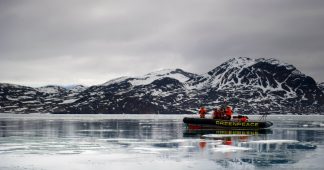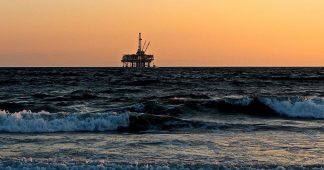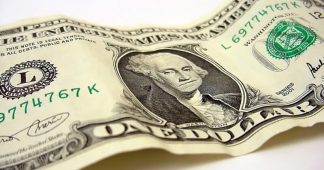Norway’s parliamentary election takes place next Monday. At issue is what to do with its oil and its money. Norwegians are blessed with a standard of living of which 99 per cent of the world could only dream, thanks to the country being the largest exporter of North Sea oil and gas. The world’s 1 per cent, they have the Oil Fund (officially, the Government Pension Fund Global) with over one trillion dollars in assets—a force towards a greener economy, should they choose to make it so.
Some voters wishfully think a warmer world would be nice for Norway. The increasing frequency and severity of extreme weather events should disabuse them. Worse, the catastrophic scenario for Norway, and Europe more widely, is if/when the Gulf Stream slows down or changes direction, resulting in Siberia-like weather year-round.
Avoiding commitment
The Labour Party, in opposition since the ‘red-green’ government lost power in 2013, proposes that Norway become ‘carbon neutral’ by 2050 but avoids a commitment to reducing oil output and export. Only the Greens want to wind down the oil and gas industry. In alignment with Labour and the conservative coalition parties, the Oil Fund has recently urged government not to require it to divest of its carbon-heavy stocks.
As the largest sovereign-wealth fund, owning over 1 per cent of the world’s stock-market assets, the Oil Fund’s view carries weight beyond Norway. The fund defers in turn to the market, aligning investment decisions with the performance of global share indices—though following what ‘the markets think’ perpetuates existing social and environment ills and does not even guarantee optimum outcomes. Its strategy overvalues all the fossil-fuel companies bound eventually to disappear, due to unsustainable business models, and undervalues those likely to replace them. It overly relies on the pseudoscience of modern portfolio theory.
If the market knows best, why are we facing the climate catastrophe? And why the 2008 financial crash, plutocratic inequality and environmental degradation? To have a sovereign fund whose mission is ostensibly the wellbeing of the many, rather than the few, espouse market fundamentalism is not only nonsensical as a guide to investment but also politically irresponsible and morally negligent. The fund’s benchmarks should instead target the technologies and businesses of the future.
The reality which must be faced is that Norway has enriched itself at the price of exporting oil and ‘externalising’ climate catastrophe—no amount of ‘carbon neutrality’ inside Norway can make up for this. The major political parties in power and the majority in the Stortinget over the past 30 years have been complicit. The coming election will show whether that is about to change.
Winding down oil and gas
There are at least five good reasons why Norway should, in a deliberate and structured way, wind down its oil and gas industry completely over the next 25 years, starting now—and why it should similarly divest itself of its oil and gas stocks in holdings overseas.
First, the oil industry is responsible for perpetuating climate catastrophe. Norway can’t pretend to be environmentally friendly while it exports more and more oil and gas. A drug dealer who is not a user is still a drug dealer and driving a cool Tesla does not cancel the harm oil exports cause.
Secondly, the Oil Fund does not need oil and gas stocks to deliver adequate returns—there are enough companies worldwide providing better investment alternatives. Actually, oil and gas stocks will increasingly have to write down the value of their assets and reserves. Major institutional investors in the United States, the European Union and even Australia are increasingly dropping the oil sector from their core portfolios to avoid the risk of stranded assets.
Thirdly, Norway’s oil industry may put all other export industries at risk. As catastrophic climate events escalate around the world other governments may feel compelled to enact import taxes on all imports from oil-producing countries, as a way of paying for climate adaptation and the social costs of climate disruption. The first step in this direction is the proposed EU tax on high carbon imports.
Fourthly, climate catastrophe will force mass migrations by mid-century, putting unbearable pressure on European countries to take in large numbers of desperate people or forcibly keep them at bay. Neither eventuality is something Norway or Europe wants to see or is prepared to face.
Finally, societies throughout history have transformed themselves for the better with inventions which define epochs—pottery, iron, the wheel, paved roads, sewers, steel, washing machines, electronics—and new energy technologies: from wood to coal, from coal and steam to oil and gas, and now from oil and gas to wind, solar, hydrogen and so on. Transition to a green economy is a world-historic opportunity to create new sources of employment, affluence and wellbeing from innovative products and how we use them. Real talent applies itself to making that happen—not holding on to what once worked but no more.
Unequivocal warning
The latest Intergovernmental Panel on Climate Change Assessment Report warns unequivocally that ‘unless there are immediate, rapid and large-scale reductions in greenhouse gas emissions, limiting warming to close to 1.5°C or even 2oC will be beyond reach’, putting us face-to-face with uncontrollable destruction. As a headline in the normally sober Financial Times put it, ‘Time is running out to avoid hell on earth’.
The Norwegian Oil Fund has the power to put real pressure on companies worldwide to come in line with the goals of the Paris Agreement. And what Norway’s electorate decides in the coming week may have impact well beyond.
* Carlos Joly is a fellow at the Cambridge Institute for Sustainability Leadership, Cambridge University, where he founded the Investment Leaders Group. He was chair of the United Nations Environment Programme Finance Initiative and co-chair of the expert group which drafted the UN Principles of Responsible Investment.
Published at socialeurope.eu
We remind our readers that publication of articles on our site does not mean that we agree with what is written. Our policy is to publish anything which we consider of interest, so as to assist our readers in forming their opinions. Sometimes we even publish articles with which we totally disagree, since we believe it is important for our readers to be informed on as wide a spectrum of views as possible.











